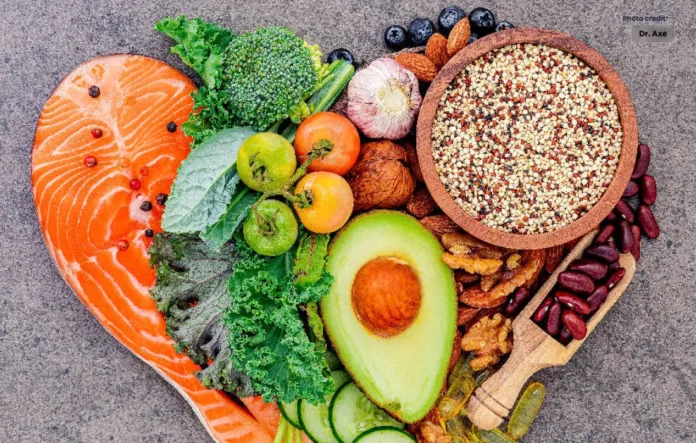Effective strategy to reduce cholesterol naturally without Medication.
Learn practical techniques and make lifestyle adjustments that reduce cholesterol without using medication. Find out about dietary changes, exercise regimens, and other all-natural ways to decrease cholesterol and support heart health.
Natural Methods to Reduce Cholesterol Without Taking Medicine
Effective management of cholesterol levels is essential since high cholesterol can dramatically raise the risk of heart disease and stroke.
Read More Informative Articles in Urdu
Even while doctors frequently prescribe prescriptions to lower cholesterol, many people would rather look into natural alternatives to lessen their dependency on pharmaceuticals.
Thankfully, there are a number of dietary and lifestyle modifications that can help reduce cholesterol levels without the need for medication.
Make the Diet Heart-Healthy
An excellent natural method of lowering cholesterol is to eat a heart-healthy diet. Including meals high in fiber and low in trans and saturated fats can help lower cholesterol levels.
- Increase Your Fiber Intake: Soluble fiber-rich foods including apples, oranges, lentils, barley, and oats can help lower LDL cholesterol levels.
- Select Good Fats: Monounsaturated and polyunsaturated fats, which are present in olive oil, avocados, almonds, and seeds, are better alternatives to trans and saturated fats.
- Consume Fatty Fish: Due to their high omega-3 fatty acid content, fatty fish such as salmon, mackerel, and sardines can help lower triglycerides and lower the risk of heart disease.
- Restrict Processed Foods: Refined sugar, fried foods, and processed foods should all be avoided as they may raise cholesterol levels.
Sustain a Healthy Weight
Obesity and excess weight raise cholesterol and exacerbate other heart disease risk factors. Natural cholesterol lowering can be achieved by losing weight while maintaining a balanced diet and frequent exercise. Aim for a weekly weight loss of one to two pounds that is steady and gradual by:
- Maintaining a Balanced Calorie Intake: To achieve a calorie deficit and lose weight, eat a healthy, well-portioned diet.
- Exercise: Make regular exercise a part of your schedule. Try to get in at least 150 minutes per week of moderate-to-intense aerobic activity or 75 minutes per week of strenuous activity.
- Increasing Muscle Mass: To increase muscle mass, which can speed up metabolism and help with weight loss, incorporate strength training exercises into your exercise routine.
Engage in Regular Exercise
Lowering cholesterol and preserving general health need regular physical activity. Exercise not only lowers cholesterol levels directly but also aids in weight management by:
- Raising HDL Cholesterol: Walking, running, cycling, and swimming are examples of aerobic exercises that can increase HDL (good) cholesterol levels, which aid in the removal of LDL cholesterol from the bloodstream.
- Enhancing Cardiovascular Health: Exercise lowers the risk of heart disease and stroke by strengthening the heart muscle, increasing blood flow, and improving circulation.
- Reducing Triglycerides: Triglycerides are another blood lipid that increases the risk of heart disease. Exercising can reduce triglyceride levels in the blood.
Give Up Smoking
Smoking can have a detrimental effect on cholesterol levels and is a major risk factor for heart disease. Tobacco smoke contains substances, including nicotine, that can harm blood vessels, causing plaque to accumulate and raising the risk of atherosclerosis. One of the best things you can do to naturally lower cholesterol and strengthen your heart is to stop smoking.
Reduce Your Alcohol Consumption
While there may be some cardiovascular benefits to moderate alcohol use, excessive drinking might increase triglyceride levels and elevate cholesterol. For ladies, limit alcohol consumption to one drink per day; for men, limit it to two drinks per day. Twelve ounces of beer, five ounces of wine, or 1.5 ounces of distilled spirits make up one drink.
Control Your Stress
Prolonged stress can exacerbate bad lifestyle choices including overindulging, skipping exercise, and eating poorly, all of which can raise cholesterol. Utilize stress-relieving methods to enhance general wellbeing and encourage relaxation, such as yoga, deep breathing exercises, meditation, and time spent in nature.
Think About Natural Supplements
Certain natural supplements can help lower cholesterol levels when used in conjunction with other lifestyle modifications, but they shouldn’t take the place of a balanced diet and active lifestyle. Before taking any supplements, speak with your healthcare professional because some may have negative effects or interfere with prescriptions. The following are a few substances that may reduce cholesterol:
- Plant Sterols and Stanols: These substances, which can be included in some plant-based diets and supplements, have the ability to prevent the intestinal absorption of cholesterol.
- Supplements containing fish oil: The omega-3 fatty acids in fish oil supplements have the potential to lower blood triglyceride levels and lessen inflammation.
- Garlic supplements: Studies have indicated that garlic supplements may help lower low-density lipoprotein (LDL) cholesterol levels.
Conclusion
It is possible to lower cholesterol levels naturally and without medication by combining good lifestyle practices, regular exercise, weight management, and dietary adjustments. You can successfully lower cholesterol and lessen the risk of heart disease by following a heart-healthy diet, keeping a healthy weight, exercising frequently, giving up smoking, consuming less alcohol, controlling stress, and thinking about natural supplements. Put your heart health first right now by putting these measures into practice and collaborating with your healthcare physician to create a customized cholesterol management strategy.
Also read this: Can High Cholesterol Cause Blood Clots?




